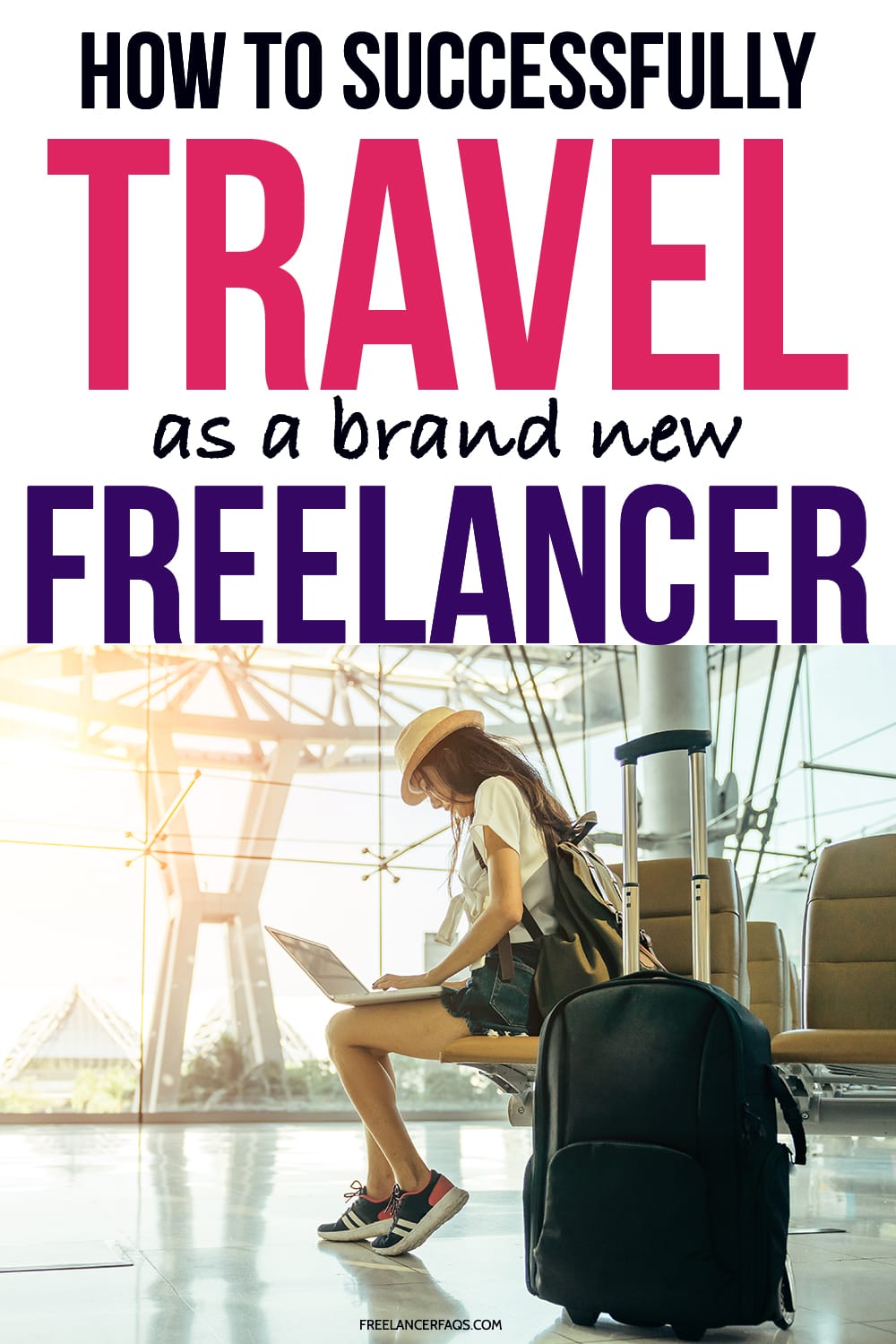What was the reason you decided to go freelance? I’m willing to bet good money one of the main reasons was so you could have more time to do the things you love, right?
For me, travel was a huge part of that decision. I love exploring new places, meeting new people, and trying new things, but I found the limited holiday my 9-5 gave me just didn’t give me enough opportunity to get out there and see the world.

What was the reason you decided to go freelance?
I wanted to try new foods, test my limits, and step outside my comfort zone. But with four weeks holiday a year? Yes, it was possible, but it was difficult.
So I went freelance. I had more time to do the things I wanted, I could work to my own schedule, and I could start traveling properly again.
Or, could I?
The Problem with Freelancing and Traveling
When you’re in a 9-5 job, you do get limited holiday, but those holiday days are paid for, which means you can enjoy your trip without having to worry about paying the bills.
When your freelancer? You don’t get paid for those days you’re not working (unless, of course, you’ve set up some awesome passive income streams).
Which makes it difficult to enjoy those new places, new cuisines, and new people when you’re constantly thinking about the money draining from your bank account.
This was a constant struggle I faced at the start of my career. Friends would call me up and say, “I wanna go here, I wanna go there, do you want to come with me?”
And my heart was shouting YES! Yes, I DO want to come with you.
But the sensible side of me? That was singing a different tune. It was wondering whether I could go without pay for a week, or if I would lose a client because I couldn’t do the work for them for two weeks.
Now, I’ve figured out the secret to being able to travel successfully as a freelancer (and, by successful, I mean not worrying about income and losing out on work). Actually, I’ve figured out the three secrets.
1. Travel Slower
As a freelancer, you don’t have to be in the office – you can work from anywhere – which is an absolute bonus if you’re a huge travel lover like me.
When I first started freelancing, I moved to Spain and started exploring Catalunya and everything it had to offer. I was based there for nine months, so I didn’t have to rush around seeing all the sights because they’d still be there the next week, and the week after that.
So I combined work and exploring. I still managed to do my weekly workload, and then I’d explore new cultures, new food, and new places on the weekend. Or I’d head out for the afternoon for sangria and tapas.
Traveling slow means you can work alongside your travels without having to sacrifice your love of exploring or your much-needed income.
Note: it’s worth looking into the rules of working in each of the countries you visit before you go, just to make sure everything you’re doing is legit.

2. Hustle Hard
Of course, getting on a plane and running off into the sunset for years isn’t a possibility for a lot of people. Maybe you have kids, maybe you have a house, maybe you have other responsibilities that you can’t just get up and leave.
That means you have to revert back to taking holidays here and there throughout the year.
However, unlike a 9-5 where you get paid a certain amount each month, being a freelancer means you’re in total control of how much you earn.
So, if you want to go away for a month to explore the depths of the Amazon rainforest, you can always hustle hard in the weeks and months leading up to it to save enough money to cover your back.
The joy of freelancing means you can press the accelerator pedal HARD when you need to, but you can also hit the brakes just as quickly.
3. Set up Systems
This is the stage I’m at now. I started by traveling slowly, then I moved onto hustling hard. Now? I go away more than I’ve ever gone away before, but I don’t have to hustle and I don’t have to lose out on any income.
Why’s that?
Because I’ve put systems in place. That means I plan in advance for when I’m away.
Maybe it means I have to bulk write articles for a client for a few weeks in advance, or maybe it means I have to switch my schedule up for a couple of days beforehand, or maybe it means hiring a subcontractor to work on some of my contracts if I plan on being away for longer than usual.
So what kind of systems do you need to put in place?
- Firstly, tell your clients that you’re going away well in advance, and lay out exactly what will happen during that time (will someone else be working on their projects? How will they be able to get in touch with you?)
- Then you want to set your schedule 2-3 weeks in advance so everything gets done and there are no nasty surprises the day before you leave
- You need a system for getting back to new clients. What if a prospect emails you on the first day of your two-week trip? Chances are, they’ll find someone else if you don’t get back to them in that time, so it’s worth setting up an autoresponder that sends them a questionnaire and a follow-up to their inquiry.
- Have a “get back into it” plan. It can be tricky adjusting to coming back to work after a holiday, even as a freelancer. So it’s worth having an action-plan ready to hit go on as soon as you get back so you can dive straight back into things.
So there you have it – three ways you can successfully combine travel with being a freelancer. It’s not always easy and, in the beginning, exploring new places can feel detrimental to your career, but remember why you went freelance in the first place.
Was it because you wanted to travel more and have more time to do the things you love? Then let yourself do that – after all, it’s you who sets your schedule now!
Over to you – how do you balance it all?



2 Comments